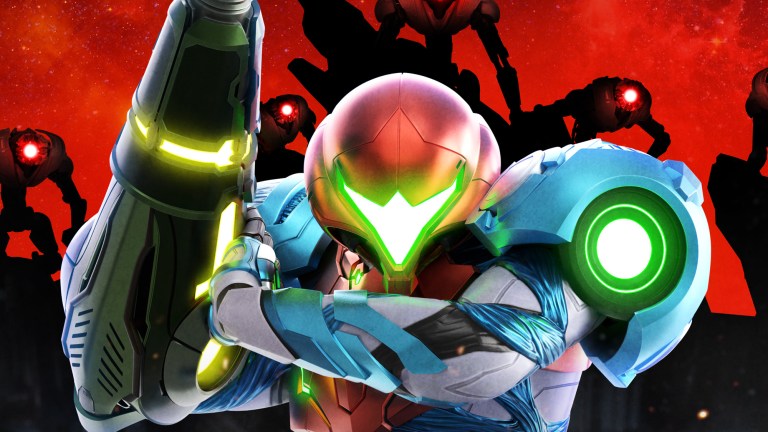Metroid Dread’s Record Sales Reveal a Disappointing Truth About the Franchise
Metroid Dread is now the best-selling Metroid game ever, but does its success hide a darker truth?

When I woke up this morning and heard the news that 2021’s Metroid Dread is now the best-selling Metroid game ever, my heart almost skipped a beat. I was always rooting for one of last year’s best games to be a best-seller, but this is about more than that. As we previously discussed, Metroid Dread had the chance to break the franchise’s history of relatively low sales without having to sacrifice too much of what makes the Metroid franchise great in the first place.
Then I saw the actual sales figure. Metroid Dread is now the best-selling Metroid game ever by virtue of having sold about 2.9 million copies so far. That means that the best-selling Metroid game ever has sold less than 3 million units.
To be clear, 3 million is not a bad number in the grand scheme of things. Many developers would be happy to have their games hit that mark and still be climbing. For that matter, Nintendo is probably thrilled that the first real Metroid game in over a decade is now the best-selling Metroid game ever. This is still a good thing for the franchise.
However, if 3 million strikes you as a low figure for one of Nintendo’s oldest and most-acclaimed franchises…well, it kind of is. At present, Metroid Dread still isn’t one of the 30 best-selling Nintendo Switch games ever (though it is close to that mark). For that matter, Metroid Dread probably wouldn’t crack the top 60 on a list of the best-selling Nintendo games ever (though the exact historical figures are up for some debate). Metroid Dead‘s success may help Metroid finally become one of Nintendo’s top 15 best-selling franchises ever, but it’s pretty surprising that it’s taken this long for that series to hit that mark. Metroid Dread‘s sales are great in the scope of the Metroid franchise, but when you start to zoom out a bit, your perspective certainly starts to change.
Indeed, these sales figures seemingly reveal that the sad truth of the matter is that Metroid may always be more of a niche franchise than the series’ biggest supporters may care to admit.
Again, the problem here isn’t that Metroid Dread underperformed or that it’s somehow time to kill off the Metroid franchise entirely. No, the problem here is that Metroid‘s sales have never really matched the legacy of that franchise’s innovations or the widespread critical acclaim the franchise’s best game’s have garnered. It’s a series that has been synonymous with greatness for over 35 years (minus a few missteps), and it’s a series that many would argue belongs on the “Mount Rushmore” of one of gaming’s most storied developers. Yet, Metroid‘s sales figures have just never seemed to fully reflect the greatness of the franchise.
Everyone has theories about why the Metroid franchise has historically struggled in terms of sales, and most of them are designed to deflect blame. Some say it’s because Nintendo has never properly marketed the games, while others argue that it may be because Metroid has never been a Nintendo launch game. Some even say the Metroid games are just too “dark” and “mature” to reach the heights that other Nintendo franchises enjoy.
There are probably a few truths to be found in all of those ideas, but the hardest truth of all may be the idea that the entire Metroidvania genre has historically been relatively niche. Some of the best Metroidvania games ever (including Castlevania: Symphony of the Night) have also struggled to achieve the kind of sales figures that match their legacy and widespread critical acclaim. It’s easy to dunk on those who say those games are too complicated, confusing, or difficult, but maybe there is something to the idea that there is something about them that has historically alienated larger audiences. Maybe there is also something to the idea that many still associate the Metroid name with those alienating concepts that perhaps turned them off years ago or never attracted them in the first place.
Mind you, there are outliers in that genre. Hollow Knight has seemingly sold more copies than Metroid Dread so far, and 3D games with Metroidvania elements (such as Dark Souls and Arkham Asylum) have also performed quite well. Indeed, some of the most successful Metroidvania games ever (in terms of sales) have been released while Metroid has been in hibernation. Developers seem determined to keep making Metroidvania games however they can, and we are starting to see more people come around to the concept. At the very least, we’re starting to see that those loyal to the Metroidvania concept remain fiercely loyal to those often great games
Ultimately, that’s the ray of light in this whole story. Maybe Metroid and the genre it helped pioneer aren’t quite blockbusters by modern sales standards, but both seem to be growing. Much like how Elden Ring found the formula needed to turn classic Soulsborne concepts into a bonafide blockbuster, there are still reasons to hold on to hope that a future Metroid game could still breakthrough in a big way. Maybe it’s Metroid Prime 4 or something we don’t know about yet, but the Metroid franchise is trending in the right direction (if perhaps a bit slower than some would hope).
Maybe Metroid is destined to be Nintendo’s niche franchise that almost always pleases existing fans but struggles to find new ones. Still, I’ll always selfishly hold on to hope that Nintendo finally finds a way to encourage millions of new fans to finally experience one of their absolute best franchises.
